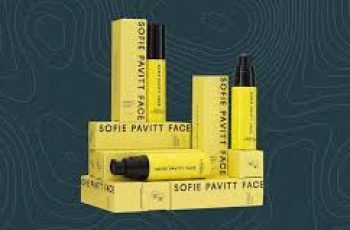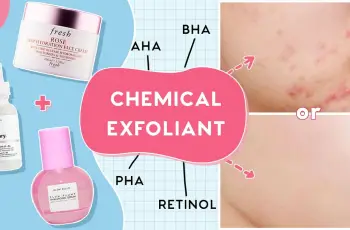
The term we all use is deodorant, and we use it to mean both. However, there is actually a distinct difference between deodorants and antiperspirants. So what is the difference? Basically, antiperspirants prevent sweating, and deodorants prevent bad odors.
However, this article doesn’t end there. To dig deeper, we need to delve into human anatomy a bit (don’t worry, we won’t bore you too much).
You have two sweat glands, the eccrine glands and the apocrine glands, which are found all over your skin, but mostly under your arms (we’ve already found the culprit). Antiperspirants are supposed to stop the eccrine glands from secreting water and salt (i.e. sweat).
Deodorants are supposed to target the apocrine glands to reduce body odor. The reason for the odor is that, unlike the eccrine glands, these glands secrete proteins and fats. These macronutrients combine with bacteria on the surface of the skin to create a bad smell.
So don’t deodorants prevent sweating?
Simple: No. If you put on deodorant and go out to watch a football game, you’re still going to sweat. But people may not be able to smell you very well!
Deodorants often contain ingredients such as triclosan, which prevent bacteria from surviving in the covered area by making it too acidic or too salty.
It should also be stressed that if the effect of the deodorant has worn off and you plan to reapply it, it is worth washing the armpits quickly, otherwise you will be applying deodorant to the already smelly armpits, which does not work.
So does sweat smell?
No, sweat is completely odorless, which surprises many people when they first discover it. As mentioned before, it is the process by which sweat (which contains fats and proteins) combines with bacteria on the skin and is broken down by bacteria.
So how do antiperspirants stop sweating?
The most common ingredients in antiperspirants that are extremely effective in stopping sweating are aluminum or zirconium, which dissolve sweat and form a soft gel that covers the underarm area and unclogs the glands.
This, of course, has caused a lot of reactions in the media and further research, as many people believe that aluminum is absorbed directly into the bloodstream (due to cuts in the armpits, such as when shaving) and can cause a variety of diseases, such as breast cancer. Other notorious chemicals include parabens.
So why use activated charcoal?
As mentioned above, activated charcoal is a natural deodorant that is free of aluminum and parabens. It is free of phthalates and fragrances, which often have a lot of unpleasant hidden ingredients.
Whether you choose Procoal Activated Charcoal Deodorant or another natural alternative, we pay attention to the ingredients in your product and read the ingredients.
What about deodorant antiperspirants?
These days, when you walk into a store to buy deodorant, this is the general term that appears on the packaging, but most are deodorant antiperspirants, which means they contain both ingredients so they fight odor and prevent sweating. When you see aluminum in the ingredients, you know it’s an antiperspirant.


